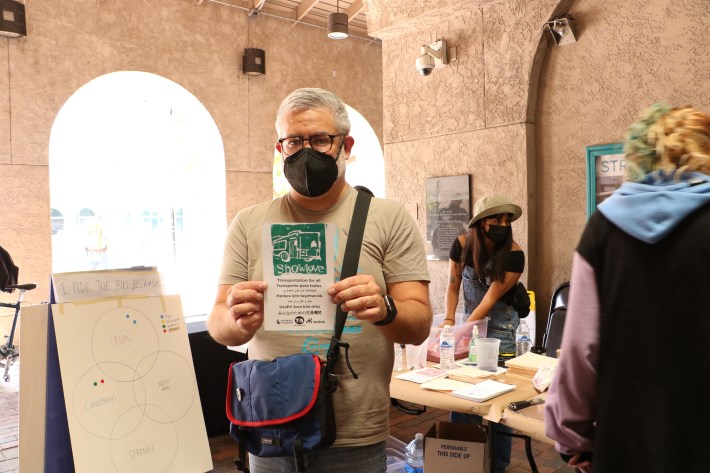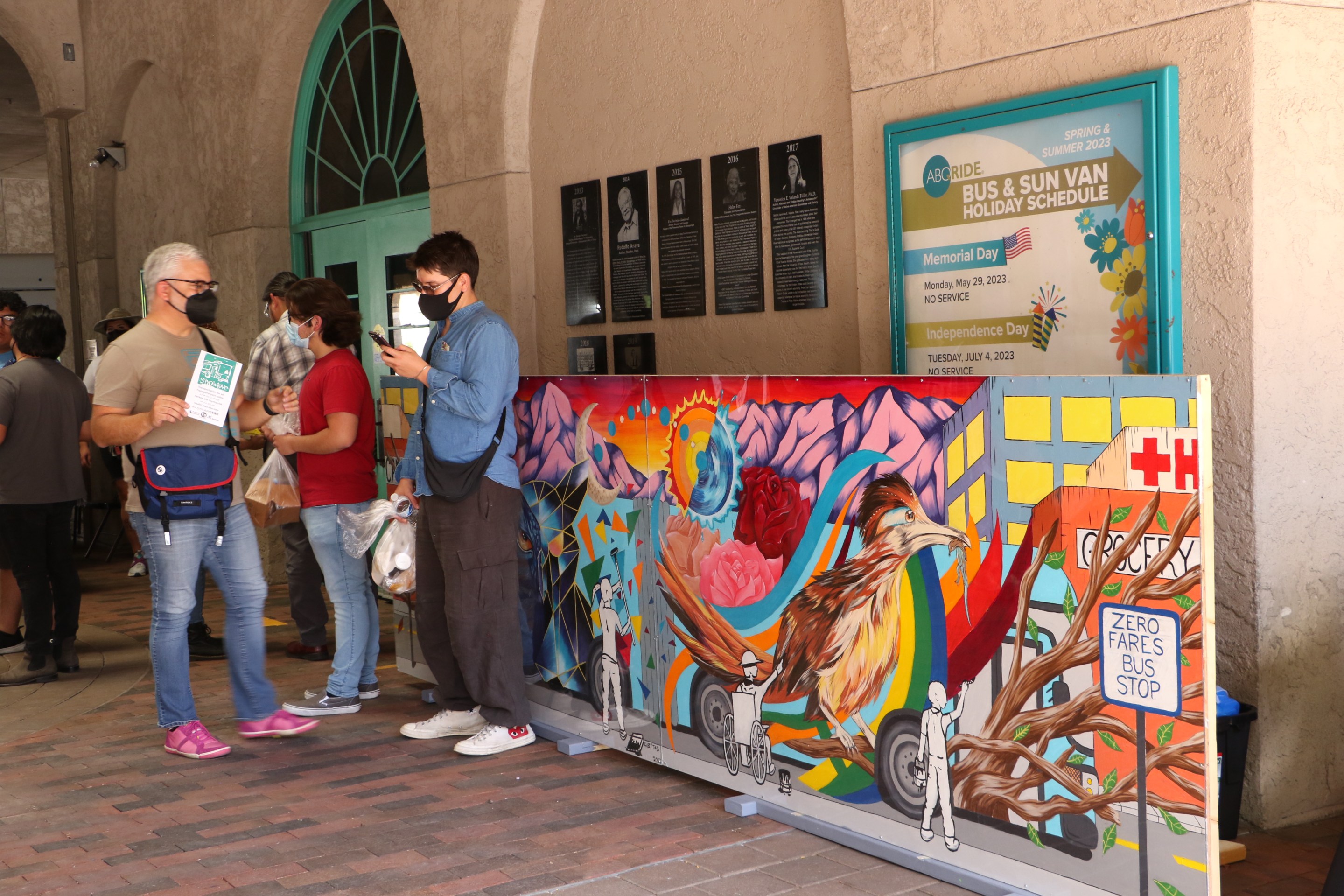Long before the pandemic launched a wave of fare-free transit programs in cities across America, a student asked Albuquerque activist Christopher Ramirez a provocative question: why isn't the bus just free?
“We laughed at him; we were like 'That's so stupid, That's never gonna happen,'" laughs Ramirez, executive director of the nonprofit Together for Brothers, a nonprofit that seeks to empower young boys and men of Color to become leaders in their communities. "Within the next two weeks, it was in our campaign."
Five years later, that campaign scored a major win when the Albuquerque City Council voted to make its fare free bus service pilot permanent, following the lead of cities like Kansas City and Olympia, Wash., who have made the reform since 2019.

Ramirez said those communities' experiences informed and energized Albuquerque’s path to a decisive legislative victory, and that he hopes Duke City can serve as an inspiration for others — especially within the Land of Enchantment itself. Because New Mexico has less than a dozen transit agencies total – two of which were already fare-free before Albuquerque joined their ranks — he says it could plausibly become first in the nation to take the fare-free model state-wide, especially since its governor, all five members of the congressional delegation, and majorities in both houses of the state legislature are all currently Democrats.
“We're pushing the effort to make New Mexico ... the first state with fare free transit," he added.
Ramirez acknowledges that bringing free transit to the rest of New Mexico may not be easy — because it wasn't easy in Albuquerque, either.
According to City Council President Pat Davis, transit operator ABQ ride initially opposed the reform, because officials struggled to fathom an operating model that didn’t factor in fare collection, and worried the city would be ineligible for DOT subsidies if it let riders on board for free.
Data analysis showed, though, that there was no meaningful correlation between fare free bus service and crime rates. Moreover, Davis was able to reassure council members that ABQ could reallocate the budget line items earmarked for fare accounting — about $400,000 annually, he recalled — to transit security and service delivery, which research shows passengers want even more than free rides.
“I want to get to the heart of politicians on this,” Davis said. “Think about the riders who are impacted by this vote about what that really means for them. Saving that four or five dollars a week on bus passes means they can access more jobs … When we kept focused on what was reality and what the law would allow us to do, it really helped us move this forward. And so I think those community stories made all the difference.”
Last night, the Albuquerque City Council voted to make transit fare free - PERMANENTLY! pic.twitter.com/hkIXKEETmg
— urban shanner (she/her) (@shantr0n) November 9, 2023
Ramirez agrees. He says affordable transportation access is a "huge barrier to those social determinants of health ... like access to education, employment, getting outdoors, healthy habits like getting access to healthy food," particularly for the state's large rural and Indigenous communities. And even in urbanized Albuquerque, a free bus ride can make a world of difference.
“In Albuquerque student fares were 30 cents, and we had students who could not afford thirty cents to ride the bus,” Ramirez said. “That's a reality … Zero fares [and] transit equity [are] not about getting on the bus: it's [about] where the bus takes you. It's the health outcomes, health equity, having our communities be healthier and safer ... Communities that are most impacted are literally going to be healthier because of not having to pay the $30 per month for a bus pass.”






